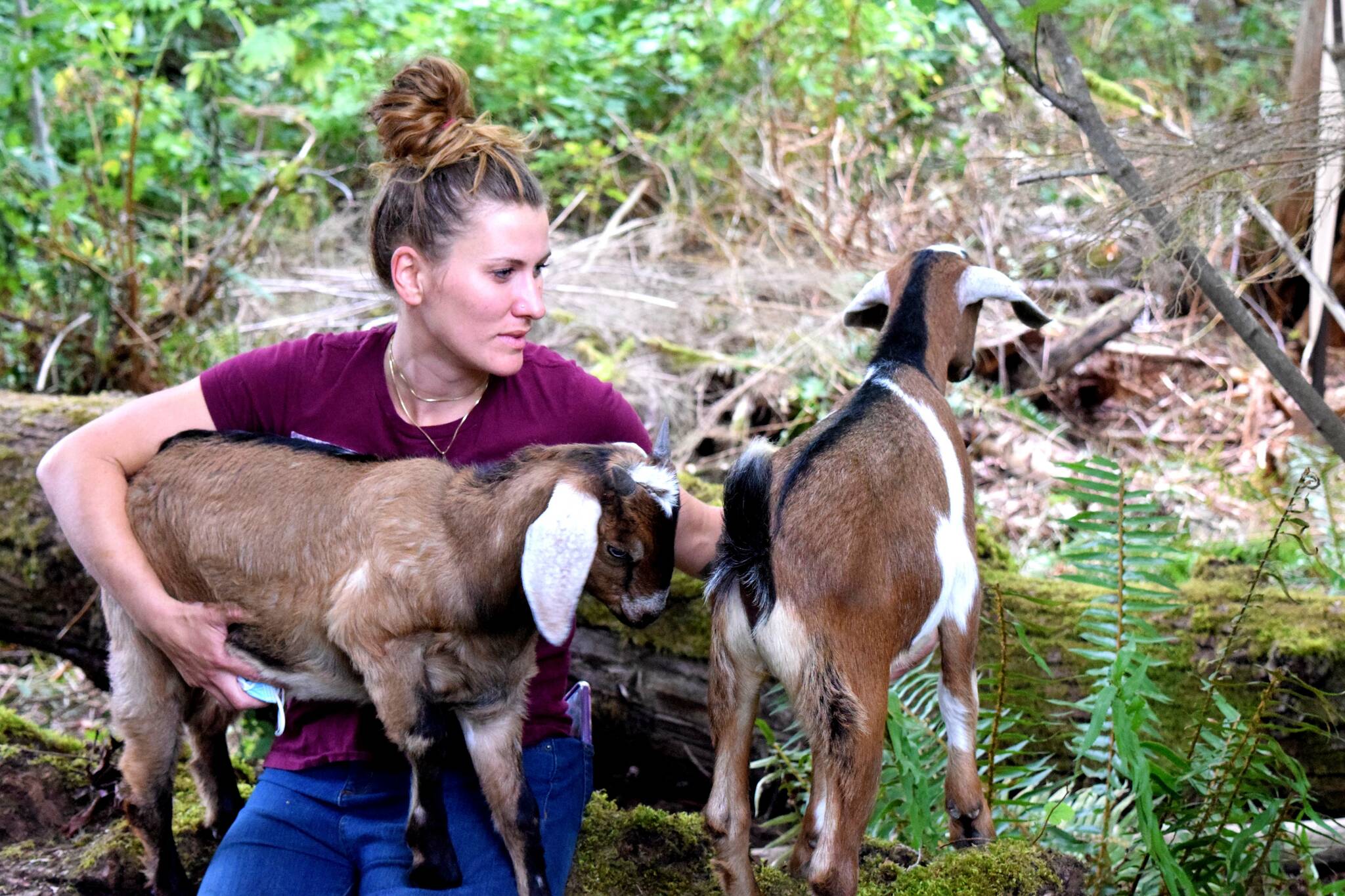When Christina Lathrop and her family first bought their residential farm, located minutes from downtown Fall City, its six acres were overrun with blackberry bushes. Alongside her husband and four kids, ranging in age from three to 14, Lathrop spent every day of the last year, including through the cold and wet winter, clearing the invasive plants and preparing the property.
When it came time to send her kids back to school this year, Lathrop, concerned about them being inside during the pandemic, looked at options for outdoor schools, but could not find many. That is when she decided to start her own: The Fancy Farm Forest School.
“What inspired me to start the forest school was [my children] and I had been outside all year and had a blast,” she said. “They did not care if it was pouring down rain. They were jumping the mud and getting dirty.”
Forest schools have been gaining in popularity over the last decade and have become even more popular as an alternative during the pandemic, The Washington Post reports. Forest schools are more commonly found in Europe, particularly in Norway and Denmark, but have not picked up as much traction in the U.S.
Although scientists say more research is needed into outdoor education, initial research has found it can increase a child’s physical activity, social relationships, motivation and well-being. A survey by Danish researchers found that 18.4% of schools in Denmark use some form of outdoor learning. According to the report, outdoor schooling began in Denmark as a grass-roots movement before being adopted by public schools.
Lathrop emphasized that her school is specifically a forest school, not just an outdoor preschool or farm school. The difference is that at an outdoor preschool students play outside, but do typical school activities, whereas at a forest school students are always outside and learning through play, exploration and hands-on activities.
The school will have a preschool program available to all children between three and six and an advanced home school program for those between first and twelfth grade. The first month of classes will focus on survival skills, including shelter building, fire safety, map reading, knots and plants.
To teach, Lathrop has hired two teachers. One is a certified teacher with Montessori school experience and the other is a former forest school instructor with a bachelor’s degree in education. She described the school’s education as a cross between a Montessori and a forest school.
“What I think is cool about [forest schools] is it allows kids to just be kids,” Lathrop said. “They learn through play, social interactions and trial and error.”
How the farm came to be
After moving away from the Snoqualmie Valley a decade ago, Lathrop, a North Bend native and graduate of Mount Si High School, returned to Fall City to buy her first farm, known as The Fancy Farm, in September of 2020.
“I’d always dreamed of having this farm but I was never able to make it happen,” she said. “I remarried a few years ago, and he knew this is something I always wanted, and has been supporting my equestrian dreams.”
Lathrop, who had previously worked as a registered vet technician treating birds, reptiles and exotic animals, originally brought the property to house her own horse, but quickly began adopting more animals. She first bought several rescue goats in order to help clear out some of the property’s overgrown vegetation and rescued horses.
During the winter, with Lathrop and her husband’s Seattle business struggling and finances not where they expected, Lathrop decided to offer horse rides to children in the area. The rides quickly gained popularity through word of mouth and visitors soon realized that the farm took rescue animals.
“I started getting emails, ‘we have these pigs, can you take these chickens, can you take this duck, we have this whole thing of quail,’” she said. “It got kind of crazy.”
Now, at capacity, the farm is home to around 40 animals — many of which were rescues — including eight horses, nine goats, three pigs and 20 or more birds. The cost just to feed all these animals is around $2,000 a month, which excludes the veterinary costs. To help with some of the cost, the farm became a nonprofit so it could accept donations for its animal care.
Although the rides sustained them throughout the summer, Lathrop said she wanted to do something else long-term. The forest school was something she wanted not only for her own kids, but to inspire others to appreciate their natural environment.
“I think it’s super obvious our environment is in crisis,” she said. “I’m hoping this will influence the next generation of kids to really pay attention to what our environment is doing, giving them skills to learn about nature and taking on leadership positions as they get older.”
To learn more about the forest school, visit https://fallcityfancyfarm.com/our-forest-school.


